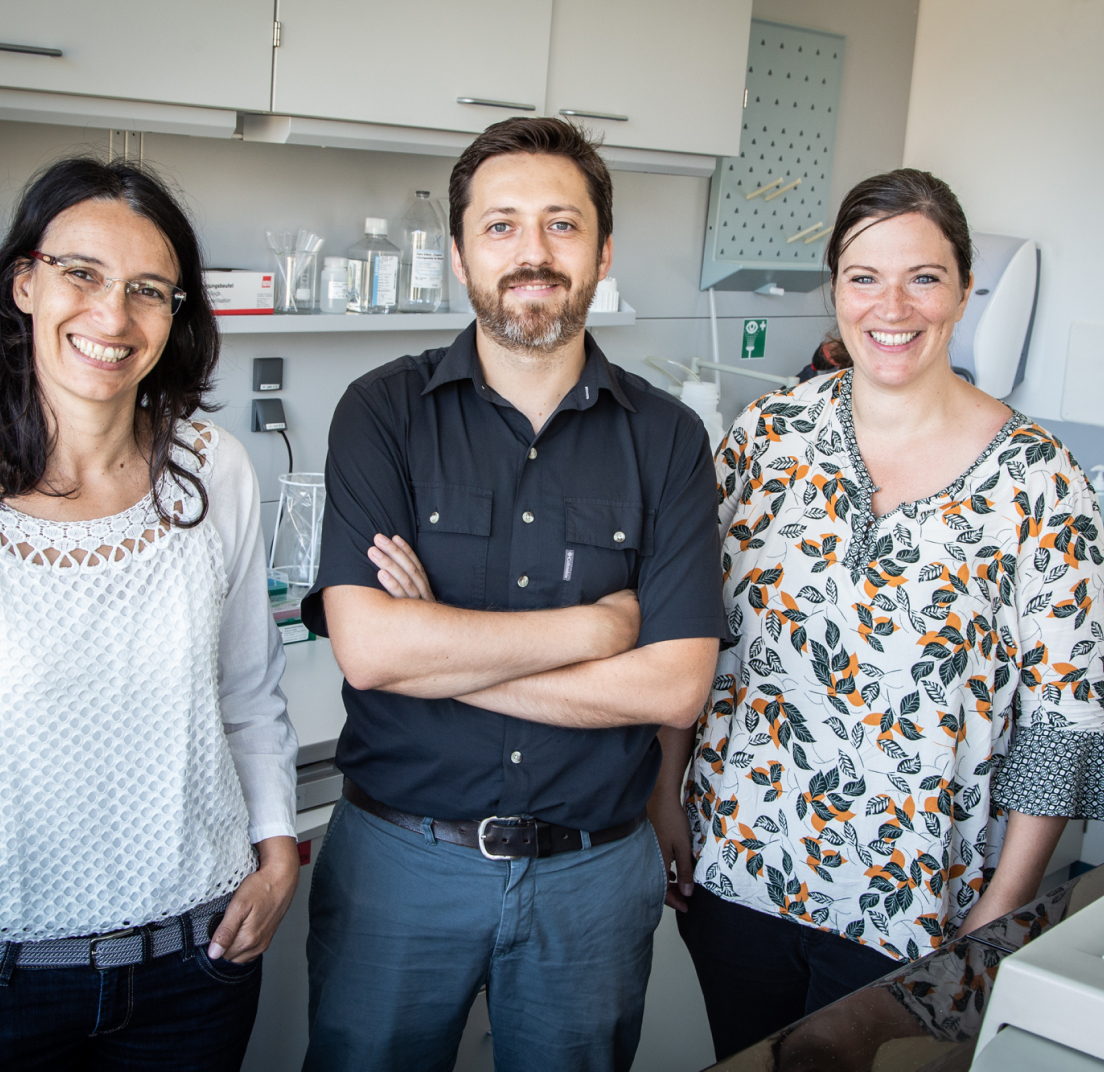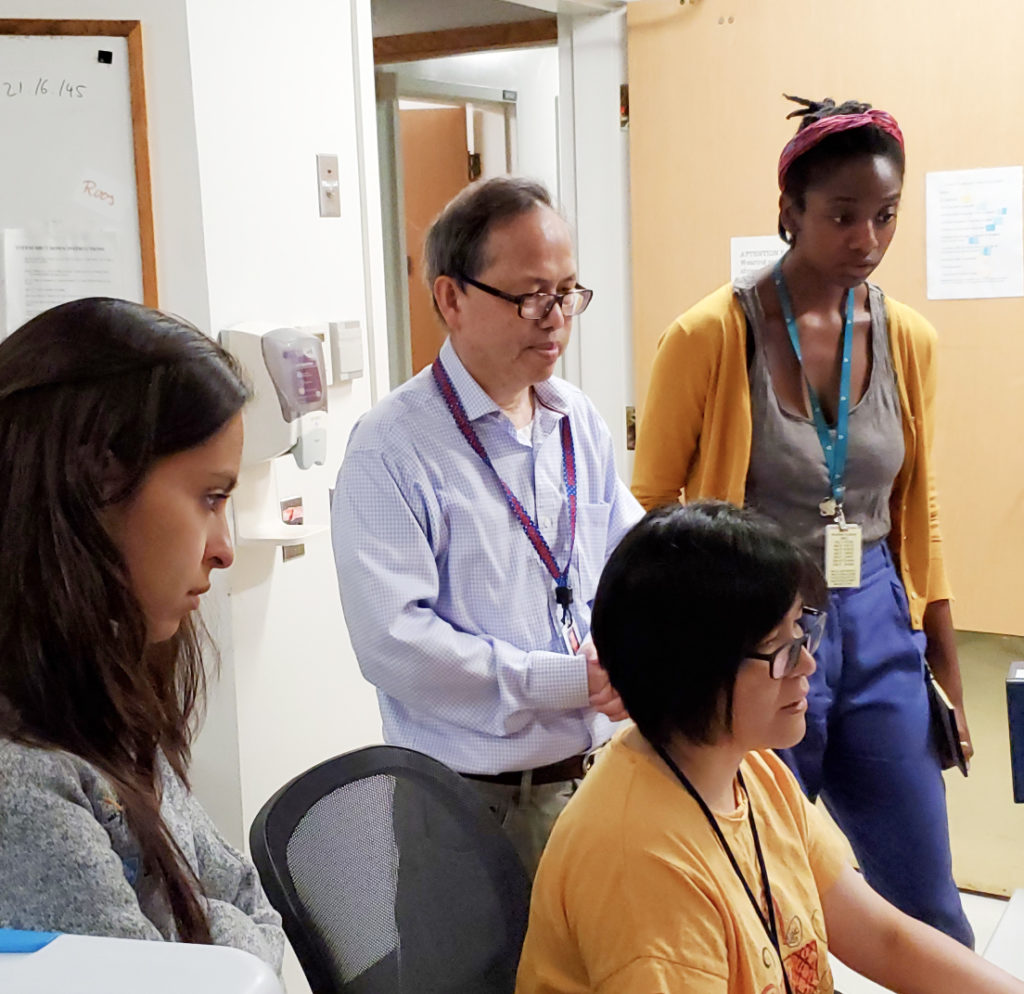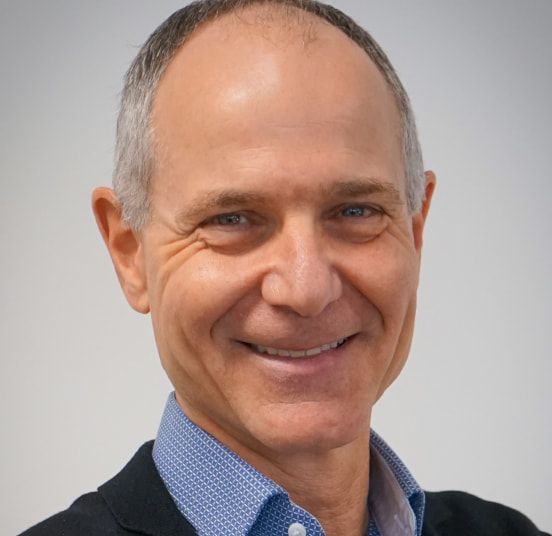“Microbial aryl hydrocarbon receptor agonists in ME/CFS”
Principal Investigator: David Esteban (PhD)
Vassar College
“Microbial aryl hydrocarbon receptor agonists in ME/CFS”
Principal Investigator: David Esteban (PhD)
Vassar College

Dr. David Esteban, PhD, (Principal Investigator), is an associate professor of biology at Vassar College. He has a broad background in microbiology and uses both wet-lab experiments and bioinformatics to address research questions related to the host-microbe interaction.
Dr. Esteban will investigate the production of molecules by microbes in the gut that activate a specific receptor (called aryl hydrocarbon or AhR). AhR dysregulation is implicated not only in gastrointestinal disease, such as inflammatory bowel disease, but also in multiple sclerosis, rheumatoid arthritis, psoriasis and viral infections.
The hypothesis, if proven, could unite a number of different observations that have been made in ME/CFS: dysbiosis of the gut microbiome, “leaky gut,” abnormal tryptophan metabolites and neuroinflammation.
Study Summary
The gut microbiome is a complex and dynamic community of microorganisms that reside in the gastrointestinal tract. Not simply passive residents, gut microbes impact systems in the human body including gastrointestinal function, inflammation and neurological processes. Alterations in the gut microbiome, termed dysbiosis, is often associated with disease and can be both a contributor to and a consequence of disease. Several studies have described dysbiosis in people with ME/CFS.
Metabolism of the amino acid tryptophan by microbes in the gut yields products (called agonists) that activate the aryl hydrocarbon receptor (AhR). AhR is a regulator of inflammation and homeostasis, and is expressed in cells of the gut, immune system, and other tissues.
In studies of gastrointestinal diseases, microbial production of AhR agonists from tryptophan reduces disease severity and improves gut barrier function. However, because the microbiome affects, and is affected by, organ systems beyond the gut itself (including the immune system, the nervous system, and the endocrine system) microbially derived AhR agonists may have systemic effects.
AhR dysregulation is implicated not only in gastrointestinal disease such as inflammatory bowel disease, but also in multiple sclerosis, rheumatoid arthritis, psoriasis and viral infections. This underscores the need to understand processes taking place in the gut as part of a complex multisystem disease. The specific role of AhR and microbially derived agonists in ME/CFS, however, has not been investigated. Together, dysbiosis and the high prevalence of gastrointestinal symptoms in ME/CFS, and its function in modulating other neurological and autoimmune diseases, point to AhR as a possible regulator of disease in ME/CFS.
The purpose of this study is to investigate the production of, and response to, microbially derived AhR agonists in ME/CFS. We propose that the microbiomes of people with ME/CFS produce less or different AhR agonists, contributing to pathological inflammation and disrupted gastrointestinal homeostasis.
Experiments will be conducted to measure AhR activating function and the induction of genes important in gut barrier homeostasis and inflammation by gut microbial communities from people with ME/CFS. We will also identify AhR agonists and characterize the gut microbial community.
The underlying mechanisms of pathogenesis in ME/CFS remain unidentified, leaving a crucial gap that makes treatment a significant challenge. Tryptophan metabolites regulate several autoimmune and inflammatory diseases, but as yet, no experimental work on ME/CFS has been done to specifically investigate the role of AhR or its microbially derived agonists. Importantly, AhR is a druggable target so uncovering a role for AhR in ME/CFS can also reveal a target for treatment.



350 N Glendale Ave.
Suite B #368
Glendale, CA 91206
SolveCFS@SolveCFS.org
704-364-0016
| Cookie | Duration | Description |
|---|---|---|
| cookielawinfo-checkbox-analytics | 11 months | This cookie is set by GDPR Cookie Consent plugin. The cookie is used to store the user consent for the cookies in the category "Analytics". |
| cookielawinfo-checkbox-functional | 11 months | The cookie is set by GDPR cookie consent to record the user consent for the cookies in the category "Functional". |
| cookielawinfo-checkbox-necessary | 11 months | This cookie is set by GDPR Cookie Consent plugin. The cookies is used to store the user consent for the cookies in the category "Necessary". |
| cookielawinfo-checkbox-others | 11 months | This cookie is set by GDPR Cookie Consent plugin. The cookie is used to store the user consent for the cookies in the category "Other. |
| cookielawinfo-checkbox-performance | 11 months | This cookie is set by GDPR Cookie Consent plugin. The cookie is used to store the user consent for the cookies in the category "Performance". |
| viewed_cookie_policy | 11 months | The cookie is set by the GDPR Cookie Consent plugin and is used to store whether or not user has consented to the use of cookies. It does not store any personal data. |
Please let us know more about you.
Please let us know more about you.
Please let us know more about you.